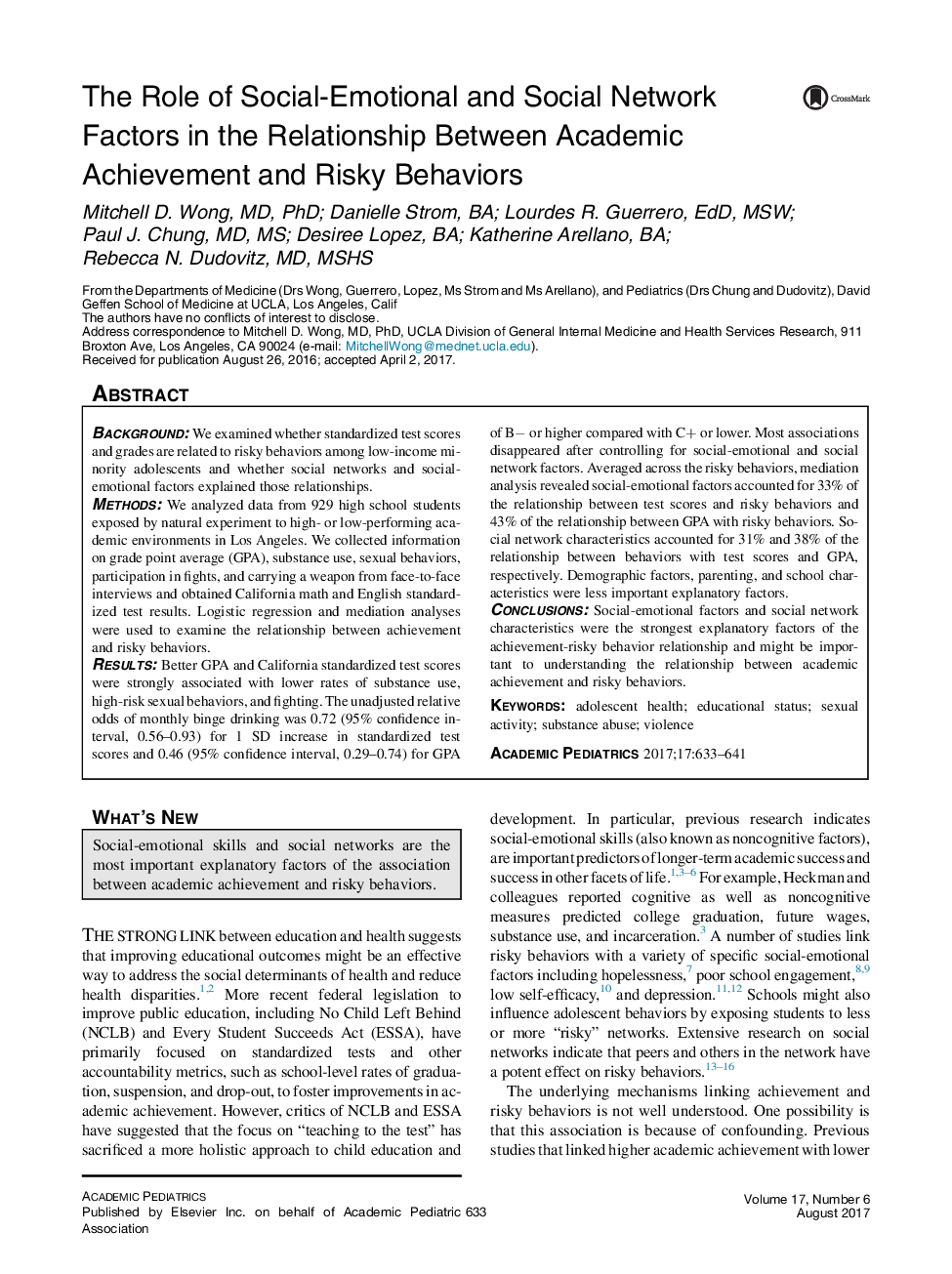| کد مقاله | کد نشریه | سال انتشار | مقاله انگلیسی | نسخه تمام متن |
|---|---|---|---|---|
| 5716849 | 1411172 | 2017 | 9 صفحه PDF | دانلود رایگان |
BackgroundWe examined whether standardized test scores and grades are related to risky behaviors among low-income minority adolescents and whether social networks and social-emotional factors explained those relationships.MethodsWe analyzed data from 929 high school students exposed by natural experiment to high- or low-performing academic environments in Los Angeles. We collected information on grade point average (GPA), substance use, sexual behaviors, participation in fights, and carrying a weapon from face-to-face interviews and obtained California math and English standardized test results. Logistic regression and mediation analyses were used to examine the relationship between achievement and risky behaviors.ResultsBetter GPA and California standardized test scores were strongly associated with lower rates of substance use, high-risk sexual behaviors, and fighting. The unadjusted relative odds of monthly binge drinking was 0.72 (95% confidence interval, 0.56-0.93) for 1 SD increase in standardized test scores and 0.46 (95% confidence interval, 0.29-0.74) for GPA of Bâ or higher compared with C+ or lower. Most associations disappeared after controlling for social-emotional and social network factors. Averaged across the risky behaviors, mediation analysis revealed social-emotional factors accounted for 33% of the relationship between test scores and risky behaviors and 43% of the relationship between GPA with risky behaviors. Social network characteristics accounted for 31% and 38% of the relationship between behaviors with test scores and GPA, respectively. Demographic factors, parenting, and school characteristics were less important explanatory factors.ConclusionsSocial-emotional factors and social network characteristics were the strongest explanatory factors of the achievement-risky behavior relationship and might be important to understanding the relationship between academic achievement and risky behaviors.
Journal: Academic Pediatrics - Volume 17, Issue 6, August 2017, Pages 633-641
